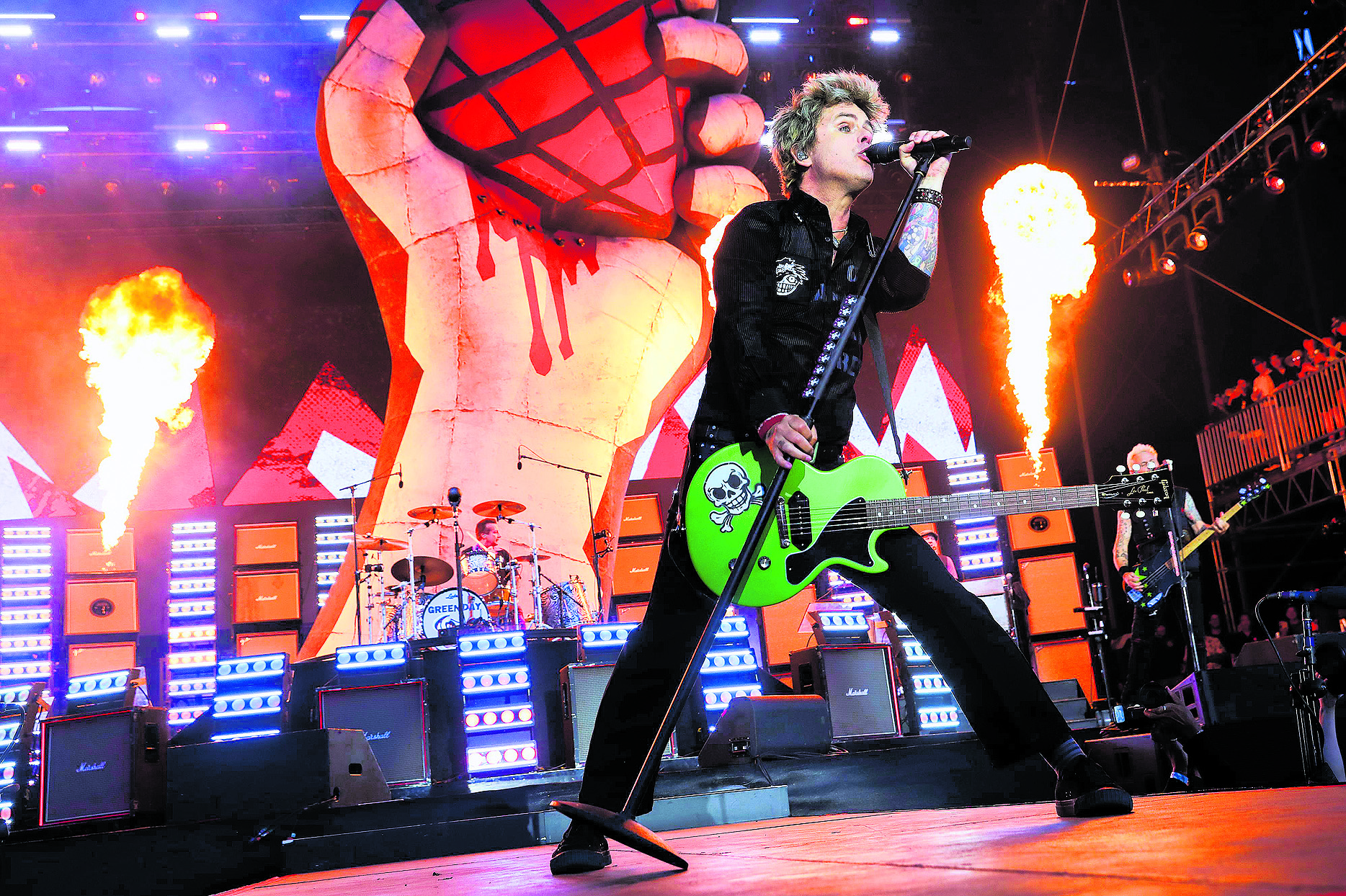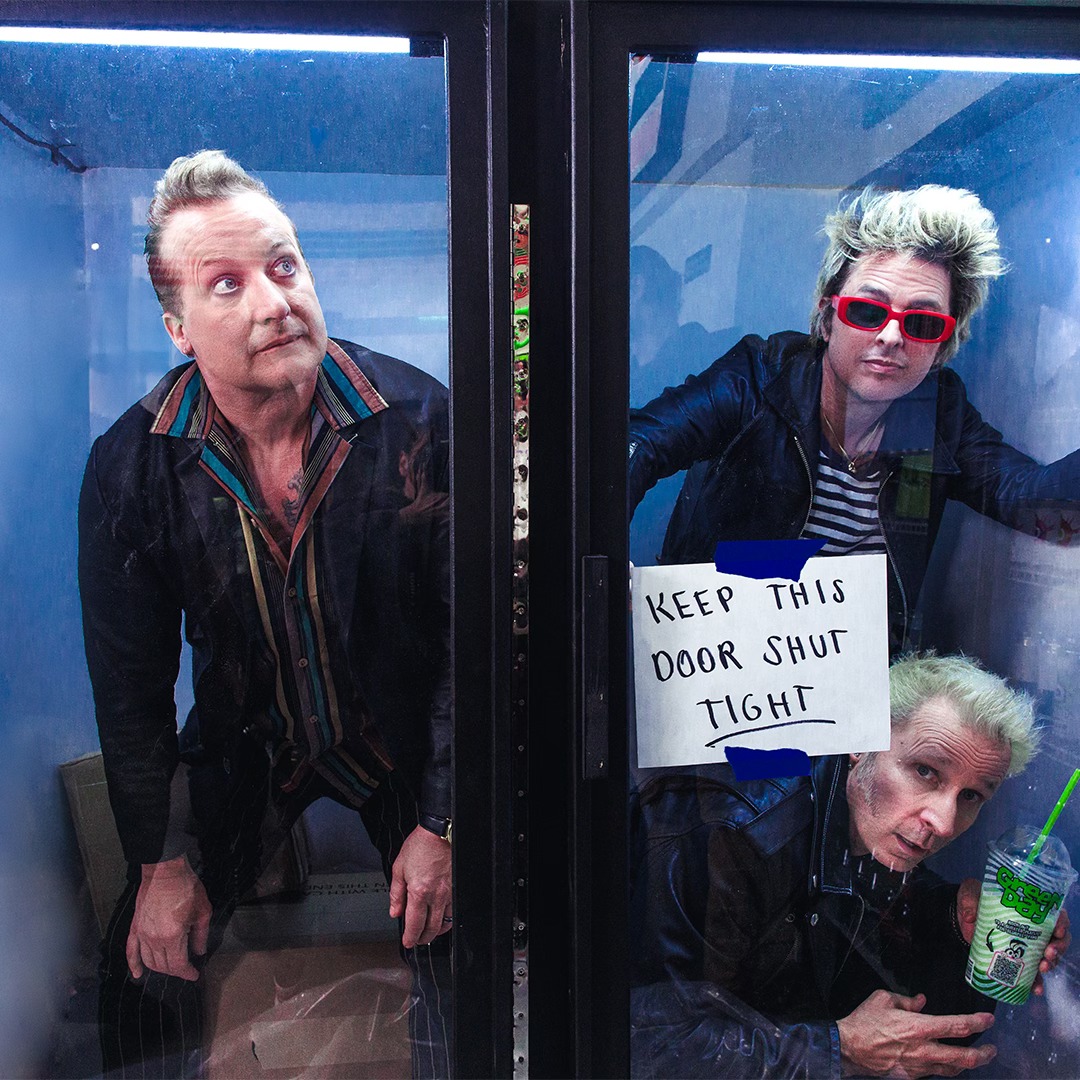Green Day performs for the first time in Bogotá: Why is this band so legendary?

It must not be easy to believe that a band went from selling around 55,000 records of their second album to breaking all imaginable barriers by reaching more than half a million copies sold in the first few months of their next album's release .
That's what happened to the American band Green Day, who jumped from the realms of punk to the mainstream stage without fear and making history.
It was with Dookie (from 1994), his most famous and popular album, that he achieved this feat, doubling the record within six months: one million albums sold of that cocktail of punk and pop lines, so loved by some and hated by others.
This happened when the industry was looking to embrace a more accessible sound for an old-fashioned, anarchic rebellion. In that context, this already solid group emerged, feeling they could chew through three-chord songs, speaking of melancholy, youthful alienation, or love, lots of love.
Gone are the stronger, more irreverent flavors they shared on the albums 39/Smooth and Kerplunk , released under the independent label Lookout! Records, and in their adrenaline-fueled concerts of undeniable power, in venues like the legendary 924 Gilman Street, where the cream of the punk scene would gather and the place where Bad Religion, Gang Green and Agent Orange also resonated, just to name a few. Before that, they were called Sweet Children and played their first show at Rod's Hickory Pit, a restaurant where Ollie, the mother of the group's singer – Billie Joe Armstrong – worked, in Vallejo, California.

Green Day singer Billie Joe Armstrong at the BottleRock Festival in Napa Valley, California. Photo: Getty Images
What was clearly evident was that Green Day was destined to go one step further, after understanding the chemistry that could develop between the fan of a club almost in ruins and a gigantic stadium packed with people, always hypnotized by the avalanche of sound from Billie (who, in addition to singing, also plays guitar), Mike Dirnt (bass) and Tré Cool (drums).
The years and the albums have shown that the decision to change (perhaps to mature, as their fans would say) was not a flash in the pan nor the luck of the great success of a first album (here it should be noted that it was the third one that was the charm).
The often unreliable album sales figures worked in Green Day's favor starting with Dookie . Today, they're said to have sold over 70 million copies worldwide throughout their career , earning the respect of an uncountable crowd, in contrast to the hundreds, perhaps thousands, who discarded their old T-shirts and dismissed them as sellouts.
But with them, more than numbers, what is quantifiable is linked to their musical talent and the way they managed to connect with new audiences, those who approached their sometimes sad and almost always sonically friendly punk.
Powerful return So it's no exaggeration to say that today, as they perform on the new Vive Claro Cultural District stage in Bogotá as part of their "Saviours Tour," is a historic day, perhaps one filled with memories for an audience that saw them in 2010 at a festival called Nem Catacoa and seven years later on their "Revolution Radio" tour. It's strange and almost unheard of, but this new venture at Vive Claro feels like it's the first time. It was about time they returned.

Live Clear Photo: Live Clear
“If music comes from a real place, people notice. Ours comes from reality, whether it's political or a love song. That said, I like what I hear from my band. Today it feels freer than ever, and continuing in that direction is the way to go,” Mike Dirnt said in 2017, in a phrase that could fit with the magic that made Green Day great.
It is true that this live performance will not be without hits like Basket Case , Boulevard of the Broken Dreams , When I Come Around or American Idiot , the signature song from that eponymous album from 2004, with a conceptual approach around a character called Jesus of Suburbia who goes through different situations and who becomes the common thread of a more ironic, social and political look at the world that these musicians from Berkeley, California sought to portray.
But perhaps the most important thing about this new release is the reunion (or, in some cases, the discovery) of the emotional fibers and musical boundaries that Green Day knew how to break with productions like Nimrod (1997), which made room for ballads that became instant classics like Good Riddance (Time of Your Life) ; or with songs that tried to revive old sounds like Brat or Stuck With Me , as well as Geek Stink Breath , which is one of those singles acclaimed for its dark and somewhat dense approach; or with the work Warning , in a soft and semi-alternative tone, like the entire spectrum that embraces the band.
However, punk survives amidst the strong political stances of Armstrong, who has always sought to warn about social control, the vices of politics, and now, the danger that, in his opinion, Donald Trump has represented for the United States. The band already addressed these themes (leaving aside the current president) in the gem that is American Idiot. This album had a run on Broadway with 400 performances and was well-received in that setting; it was even proposed to turn it into a film, an idea still dreamed of by those who don't doubt that the aforementioned, critically acclaimed album deserves to be on the big screen.

Green Day Photo: Green Day
But beyond a review of their recording adventures (which are represented in 14 albums) and other achievements (such as nothing more and nothing less than having won five Grammy Awards and being able to boast 14 nominations for that recognition), the truth is that Green Day is the reaffirmation of a desire to give a deeper nuance to their message about the reality they had to live, as well as the ability to criticize without problem that industry that once embraced them and in which they continue to surf between its waves and changes.
You have to admit that this is a band that has a good balance of its long-time fans and is very welcoming to this new generation of pop punk fans, or whatever you want to call what Green Day offers in its eclectic discography.
Billie Joe Armstrong himself said it well in an interview on Kerrang magazine's website, during his performance at this year's Coachella Festival, where he performed alongside bands who today see them as icons of old-school rock. "We continue to welcome a new generation of fans: there are people who go back to the '90s, the 2000s, the 2010s, and now to the 2020s," Billie commented enthusiastically.
We continue to welcome a new generation of fans: there are people who go back to the 90s, the 2000s, the 2010s, and now to these 2020s.
“And I think there are generations of families that end up coming to our shows, from people my age to 14-year-olds. It's from Generation X to Generation Z, and that's really special. It's something I never take for granted,” the 53-year-old singer emphasized in the article written by Emily Garner. That will surely be experienced at his show in Colombia tonight.
“The key is always to write good songs, which I think we’ve achieved. When (for example) someone buys an album like Dookie , it’s an album that sounds like a group of kids recorded it together in a studio last week . There are people who would never guess that album was recorded 30 years ago. We’ve achieved the same thing as when you listen to something like You Really Got Me by The Kinks. That song still resonates with me and doesn’t sound dated,” Armstrong also explained in a recent interview with Variety magazine.
In that note, he tried to explain the turn his career took, with a sound connected to the frustration, confusion, and dreams of the early 90s, which seemed to give space to those who wanted to reveal the gray areas of life, without neglecting a strong and unbridled guitar that, for many, was a riff of hope for an increasingly crazy world, in which the phrase "Punk is not dead" continues to resonate. And in which Green Day also throbs with their hits and musical twists.
eltiempo





